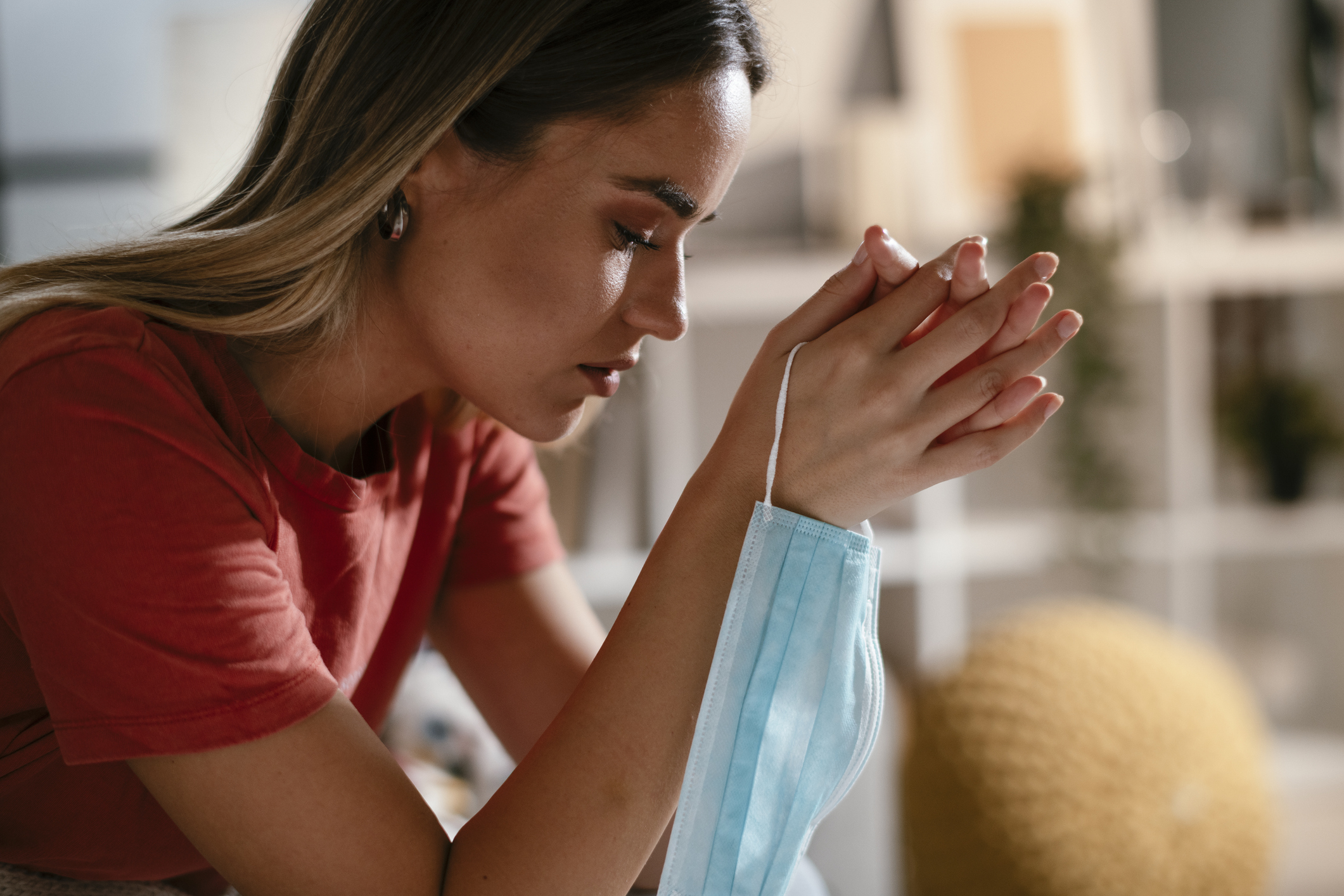

As we enter the third year of the COVID-19 pandemic, we’re more stressed-out than ever. And with the omicron variant continuing across the United States, that stress won’t be going anywhere anytime soon.
In its 2021 Stress in America survey, the American Psychological Association (APA) found roughly 1 in 3 American adults are so stressed about the pandemic that they struggle to make even the most basic daily decisions like what to wear and what to eat. More than a third also said it was more stressful to make major life decisions now than it was before the pandemic.
In the survey, about 2 in 3 adults agreed the uncertainty about what the next few months will bring is causing them stress, while about half said the pandemic makes planning for the future seem impossible.
The cruel irony in these results is that these elevated stress levels may actually leave us more vulnerable to the very thing we’re most anxious about…
The link between stress and COVID-19 susceptibility
A recent study by investigators in the United Kingdom and New Zealand found people who experienced higher levels of stress, anxiety and depression at the start of the pandemic had a greater risk of getting COVID-19. And when they did contract SARS-CoV-2, the virus that causes COVID-19, they experienced both a greater number and severity of symptoms.
Previous research has demonstrated higher levels of stress and reduced social support are linked with increased susceptibility to viral respiratory illnesses and more severe symptoms. Both of these factors have been present during the COVID-19 pandemic.
In the recent observational study, nearly 1,100 adults completed surveys during April 2020, then reported whether they experienced SARS-CoV-2 infection and COVID-19 symptoms through December 2020.
“The significance of the work is in that it turns the debate regarding the mental health aspects of the pandemic on its head,” says study lead Kavita Vedhara, a professor at the University of Nottingham. “Our data show that increased stress, anxiety and depression are not only consequences of living with the pandemic but may also be factors that increase our risk of getting SARS-CoV-2 too.”
The researchers say further work is needed to determine whether and how public health policy should change to accommodate the study findings. But as far as we handle stress ourselves going forward, it looks like it’s time to make relieving it a priority…
Eat your way to lower stress
So far, we haven’t been great about coping with pandemic-related stress. In the APA survey, about 59 percent of Americans said stress has led them to change some behaviors, including altering their eating habits and physical activity levels. And more than a third admitted they eat to manage their stress.
It’s no wonder many Americans have gained significant weight since the pandemic began. Recent data from the Centers for Disease Control and Prevention show obesity rates of 35 percent or higher in 16 states, an increase of four states in the past year.
Luckily, there’s a way you can address pandemic stress and avoid the associated weight gain in one fell swoop — by adopting a Mediterranean diet.
Following this eating plan, which focuses heavily on plant-based foods and healthy fats, has been shown to help reduce the physiological effects of stress. So, not only does it promote healthy aging and weight, it may be the ultimate diet for stress management.
Of course, starting an entirely new way of eating can be overwhelming on its own. If you find the idea is adding to your stress, start small by eliminating one type of unhealthy food at a time. For instance, you can substitute fish or chicken for red meat, or a baked potato for French fries. And when snacking, skip the chips or cheese plate in favor of hummus and vegetables.
Sources:
Stress associated with an increased risk of getting Covid-19, study finds — University of Nottingham
Stress in America™ 2021: Pandemic impedes basic decision-making ability — American Psychological Association
Obesity Rates Rise During Pandemic, Fueled By Stress, Job Loss, Sedentary Lifestyle — NPR
